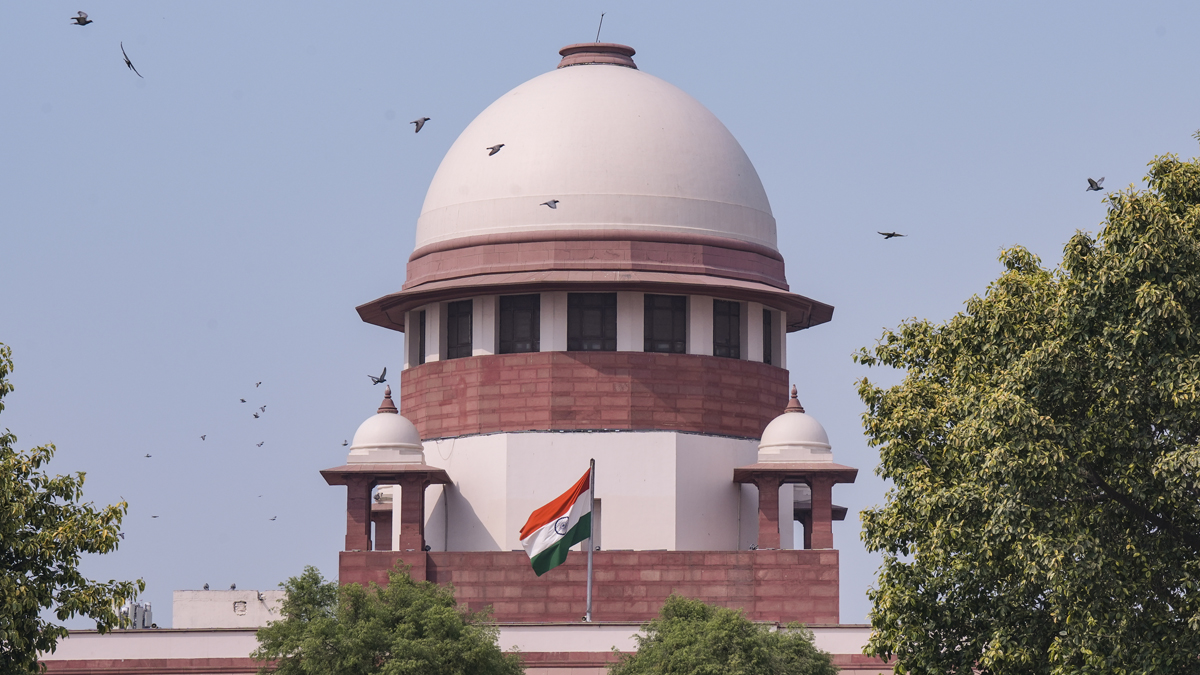Rekha Sharma: Supreme Court directs appointment of a woman judge with low vision disability, invokes article 142
 New Delhi: View of the Supreme Court of India, in New Delhi, Wednesday, April 16, 2025. The apex court has begun hearing on a batch of petitions challenging the constitutional validity of the Waqf (Amendment) Act, 2025. (PTI Photo/Manvender Vashist Lav)(PTI04_16_2025_RPT222B)
New Delhi: View of the Supreme Court of India, in New Delhi, Wednesday, April 16, 2025. The apex court has begun hearing on a batch of petitions challenging the constitutional validity of the Waqf (Amendment) Act, 2025. (PTI Photo/Manvender Vashist Lav)(PTI04_16_2025_RPT222B)
Rekha Sharma, a determined and qualified candidate living with a 40 per cent low-vision disability, had long aspired to serve as a civil judge in Rajasthan. In 2024, she applied for the Rajasthan Judicial Services Examination under the category of Economically Weaker Section (EWS) with Person with Benchmark Disability (PwBD). She successfully cleared the preliminary stage and moved on to the mains with high hopes. However, her dreams were dashed when the results showed she had not qualified.
Rekha had scored 119 marks in the mains examination, while the announced cut-off for the PwBD category was 121.5. At first glance, it seemed she had simply fallen short. But a closer look at the recruitment advertisement revealed something crucial as Clause 23 clearly stated that the minimum qualifying marks for PwBD candidates were 117.25, which is 35 per cent of the total. By this measure, Rekha had actually qualified.
Delving deeper, Rekha discovered that one of the selected candidates, Anu Meena, who was also a PwBD candidate, could have been selected under the Scheduled Tribe (ST) category based on her scores. This would have freed up a seat under the PwBD quota. Moreover, an Office Memorandum dated September 27, 2022, had clarified that PwBD candidates selected on their own merit without availing any relaxation should not occupy reserved posts, a principle meant to ensure fairer distribution of reserved seats.
Rekha’s case reached the Supreme Court, raising complex but critical questions about the interplay between horizontal reservations (like PwBD) and vertical ones (like EWS or ST). Representing Sharma, Advocate Talha Abdul Rahman submitted that the Rajasthan judiciary had earmarked nine positions for candidates with benchmark disabilities, including two specifically for those with blindness or low vision. However, only two candidates were eventually appointed against the nine reserved positions.
The Supreme Court bench comprising Justices B.V. Nagarathna and Satish Chandra Sharma took a principled yet compassionate stand. Acknowledging that Rekha had indeed met the minimum eligibility criteria and found that she had been unfairly excluded due to a rigid application of reservation norms.
To correct this, the bench invoked Article 142 of the Constitution, which empowers the Court to pass orders necessary to do complete justice, thereby ensuring justice, dignity, and rightful inclusion in the judiciary.
The Court directed the Rajasthan High Court and other authorities to appoint Rekha Sharma as a Civil Judge. This could be done either by placing her against an existing vacant PwBD post or by creating a new (supernumerary) post especially for her.
India